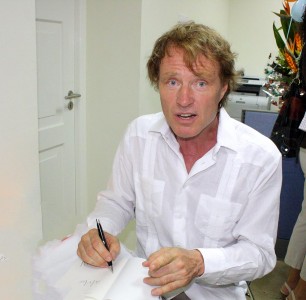By Jacob Gelt Dekker, opinion columnist for Curaçao Chronicle

Refineria di Korsou, a fully owned island property, needs new investment. Sulfur levels in its refined end products are too high for most retail markets, and black bellowing exhaust from smoke stags is too polluting for modern standards.
A state-of-the-art cracker tower and switching to Natural Liquid Gas as refining fuel seem to be the answers but at the expense of about at least US $ 1 billion reinvestment.
When Shell sold the plant to the island for one US dollar, in 1986, refining crude oil was an expense and not an income revenue stream, like it is today. In today’s markets, the refinery can generate, on average about US $ 5- 6 per barrel net profit from refining activities of 300,000 barrels a day, resulting in an annual profit of about US $ 350-450 million a year.
Unfortunately, the present tenant, Venezuela’s Pdvsa, is eager to repatriate all profits back to President Maduro of Venezuela and his junta and is reluctant to make major investments. The underlying reason is pure and only the local political and economic situation in Venezuela.
Recently, Curaçao and Venezuela signed a MOU, committing both parties to search for a new partner to facilitate these new investments. So far, American, European and Asian candidates, either have not shown any interest, or flatly turned down the opportunity. One of the remaining contenders is Colombia.
The state-owned Colombian Petroleum Enterprise, Ecopetrol, pumps about one million barrels per day, but its production is plagued with terrorist attacks. In May, these attacks resulted in a decline down to 950,000 b/d from the projected 1.095,000 b/d. The drop-off was mostly caused by the 93-day shutdown of the 900-km Cano-Limo pipeline with a capacity of 220,000 b/d, which was bombed by rebels, at least 20 times this year. The pipeline was reopened on May 25, but not before Colombia lost 5 million barrels of oil sales.
The, on 7 August 2014, inaugurated Colombian President, Juan Manuel Santos, who won re-election on June 15, touting his peace initiative with FARC-rebels, could become the big game changer. He has to convince rebels as well as indigenous communities that it is in their direct and best interest to unblock access to oil installations, allow repair crews to do their work, and give access to new oil fields explorations.
To make this work, the President still has to perform a high wire balancing act with environmental standards, labor unions, local communities and other non-FARC rebels like ELN, who are all trying to drag him down.
Ecopetrol has a lot on its plate as far as strategic investments, but new partnership developments in the Gulf of Mexico should bring new winds to further consolidate Colombia’s position in the Caribbean area.
Reficar, a Ecopetrol subsidiary, will be commissioning a 200,000 b/d, deep conversion, complex refinery in Cartagena, destined for the export markets of 165,000 b/d, by July next year. That investment would bring their total capacity up to 400,000 b/d, but full operation is not expected before 2017.
So Ecopetrol has to make a choice and set priorities, like, either modernization of their aging Barrancabermeja refinery, a petrochemical complex in Cartagena, or aggressive exploration and crude production.
With upcoming exports from the USA, the Curaçao- RdK, with a capacity of 320,000 b/d, may become a much better alternative with bigger margins and thus much more attractive to investors in Colombia.
Jacob Gelt Dekker


Why invest in a small and more and more unstable country like Curaçao?
Barrancabermeja may be aging, RdK Curaçao is dying of old age.
There is overcapacity in refining in the world anyway. So the refinery margin may become negative as it has been so often in the past.